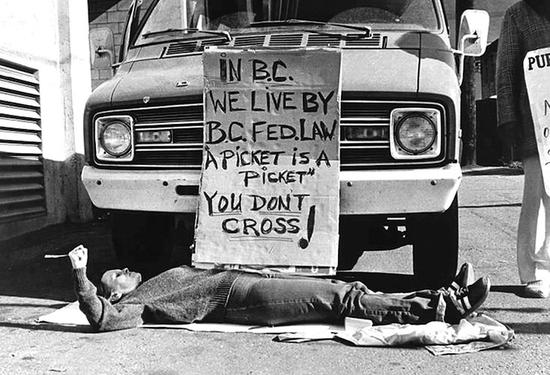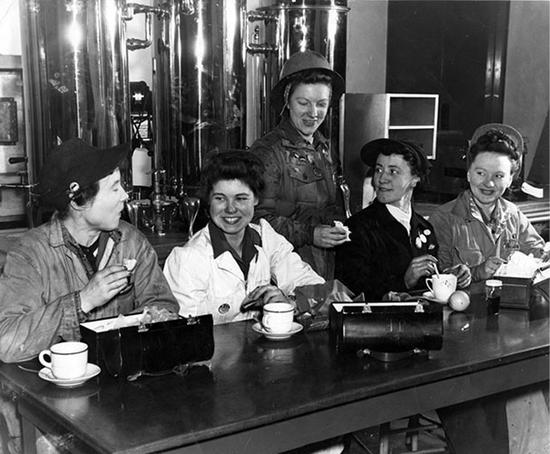Foreword
by Irene Lanzinger, president, BC Federation of Labour
On the Line: A History of the BC Labour Movement is a must-read for anyone involved in or interested in the labour movement today. It helps us to understand where we came from and why BC unions developed a national reputation for fight-back and militancy. Author and former labour journalist Rod Mickleburgh tells many stories of our struggles as workers—from the battles in mines, mills and the fishery to improve brutal conditions and paltry wages to the recent inspiring efforts of public sector unions in health care and education, backed by a co-ordinated labour movement, taking on government in the streets and in the courts to defend the collective bargaining rights of union members. Mickleburgh makes it clear: no one ever gave working people the right to organize unions, the right to a safe and healthy workplace, the right to bargain for fair wages and decent working conditions—basic rights we take for granted today. Working people through their unions had to fight and in some cases suffer injury or death to achieve this. With skill and compassion, Mickleburgh weaves multiple stories of these many battles and struggles to put together the essence of this book—how working people and their unions built a decent life for future generations with their sweat and dogged determination to take on employers and governments every time they tried to stop this progress. Mickleburgh tells the whole story. You can feel the sorrow of families with scant incomes on which to live being thrown out of their company-owned homes, the helplessness of striking workers forced to confront scabs brought in by employers to take their jobs, the horror of armed intervention by police or militia, always on the side of the employers—never on the side of working people. Mickleburgh brings our history to life.

You cannot read this book and not be overwhelmed by all the forces that opposed the progress of workers over more than a century of labour history. And you cannot read this book and not marvel at the tenacity and the capacity of workers to organize and fight back.
Mickleburgh recounts the work of Indigenous peoples, immigrant workers and women, and the additional challenges of discrimination these groups faced in their attempts to make a living. And it is important here to note, as Mickleburgh does, that our history is not always pretty. In any era, unions exist within the broader social and political context, and at times in the past they adopted the racist and sexist attitudes then prevalent. Mickleburgh also captures the many moments in our past when various political persuasions from socialists to communists to anarchists and others played a leadership role in organizing workers to fight back. And he pays heed to the battles workers sometimes waged against other workers because of racial, political or organizational differences.
Not since Paul Phillips wrote No Power Greater fifty years ago has anyone tried to tell the overarching history of unions in BC. On the Line is timely; and in the limited space provided, Mickleburgh has chosen those stories that give us the big picture. Thus, not everyone may see themselves or their union in this history. But the book does capture the essence of how we got to where we are today. And because the story takes us right up to the present, we are quick to realize that the battles and struggles for rights and fairness for working people goes on. It is even more important for those still active in leading, working for, organizing or representing workers in the union movement to know our history. Knowing where we have come from will help us move forward in our continuing fight for a better BC in a better world.
This book is both entertaining and inspirational. As I reflected on Mickleburgh’s capacity to completely engage the reader, I realized it is not only because of my role in today’s labour movement; it is just because he tells such a damn good story. And that story is our story.

